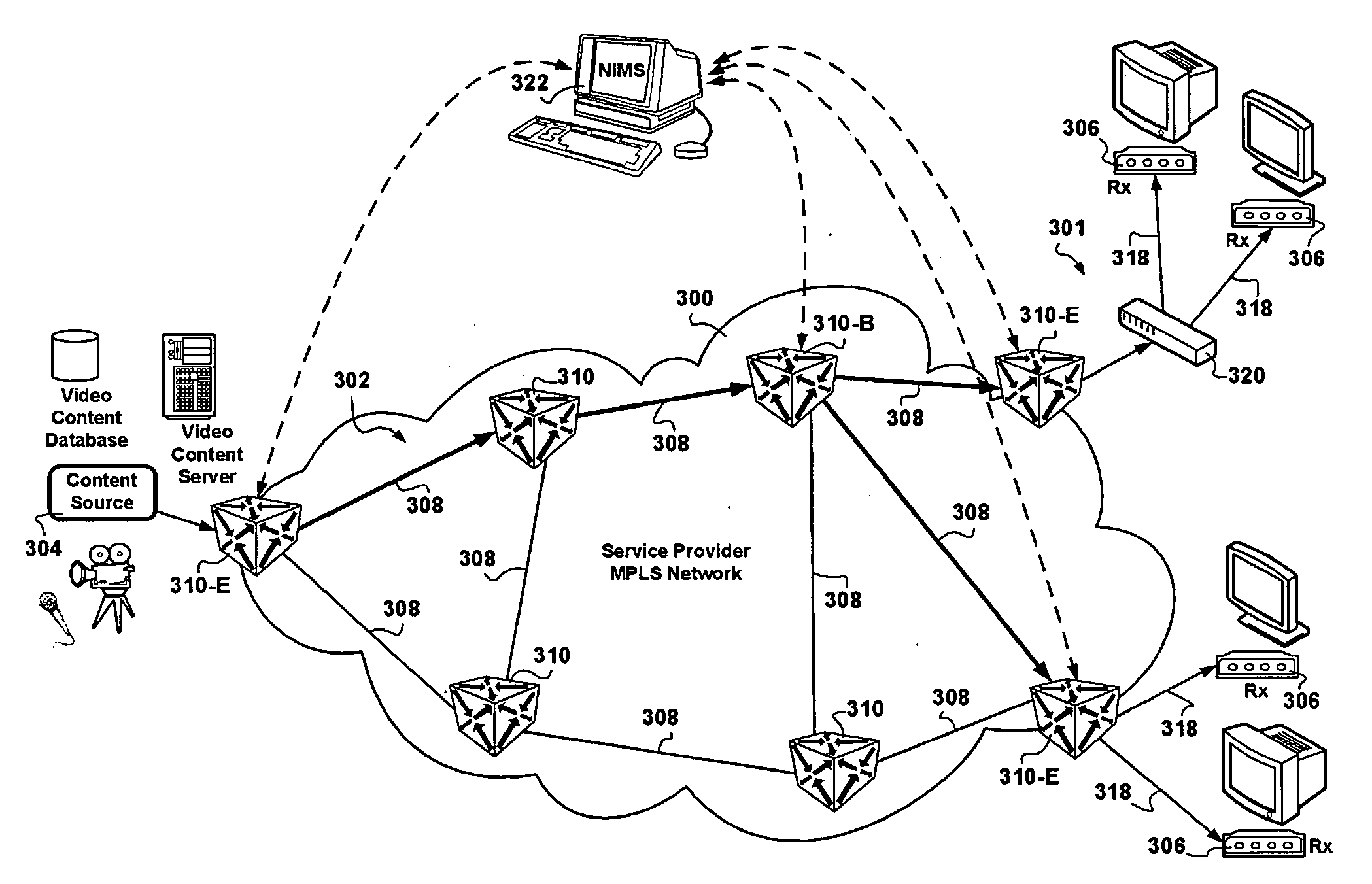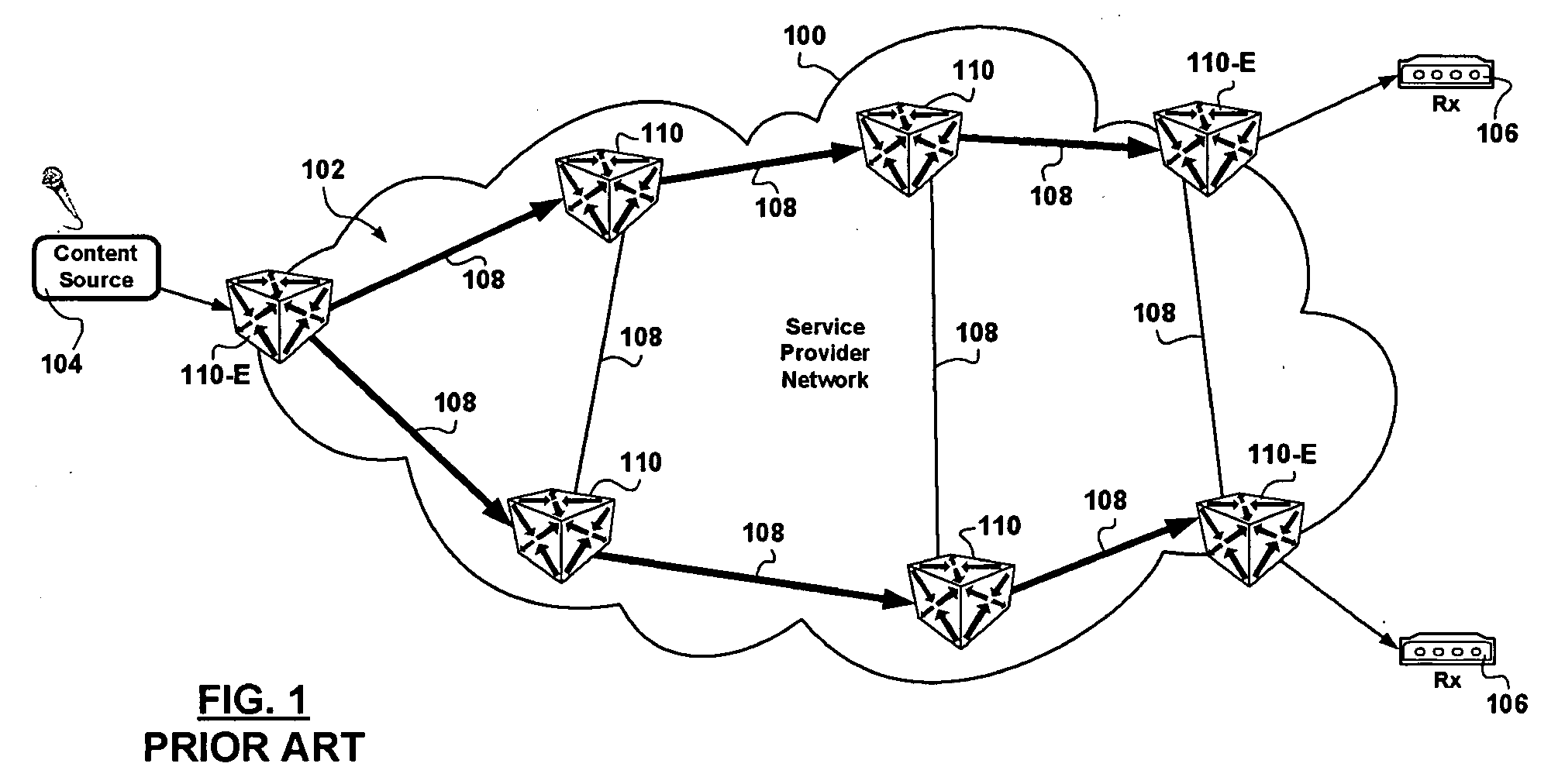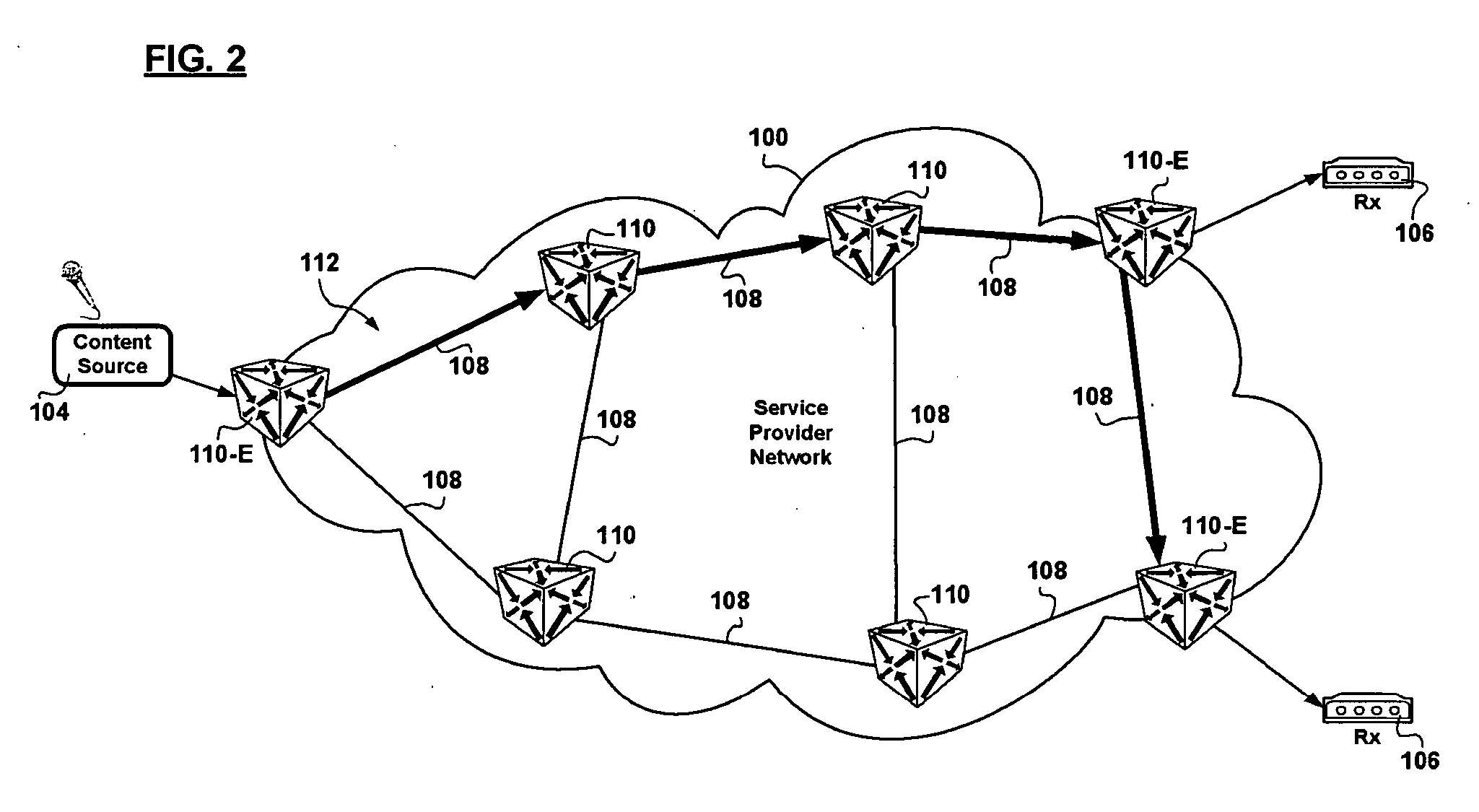Architecture and provisioning tools for managed multicast virtual private LAN trees
a virtual private network and provisioning tool technology, applied in the field of high bandwidth broadcast data communications, can solve the problems of long delay, unidirectional media content distribution, and inability to widely adopt multicast connectivity, and achieve the effects of improving manageability, facilitating group membership changes, and facilitating network nodes
- Summary
- Abstract
- Description
- Claims
- Application Information
AI Technical Summary
Benefits of technology
Problems solved by technology
Method used
Image
Examples
Embodiment Construction
[0040] In accordance with an exemplary embodiment of the invention, a multicast connectivity provisioning method is provided for reducing the delay in establishing new tree branches to new members of a multicast group. In particular, in provisioning high bandwidth internet TV broadcast services, multi-channel video content is distributed from a super-head end content source 304 over a service provider's network 300 shown in FIG. 3, to multiple distribution edge router network nodes 310-E. The proposal applies equally to implementations in which a multicast group is defined: for each video content channel, for the aggregate of all video content channels, and for a subgroup of video content channels. The availability of multi-channel content at distribution edge router network nodes 310-E eliminates the need to provision bandwidth across the provider communication network 300 in real-time in response to each multicast group membership join request. Furthermore the availability of mult...
PUM
 Login to View More
Login to View More Abstract
Description
Claims
Application Information
 Login to View More
Login to View More - R&D
- Intellectual Property
- Life Sciences
- Materials
- Tech Scout
- Unparalleled Data Quality
- Higher Quality Content
- 60% Fewer Hallucinations
Browse by: Latest US Patents, China's latest patents, Technical Efficacy Thesaurus, Application Domain, Technology Topic, Popular Technical Reports.
© 2025 PatSnap. All rights reserved.Legal|Privacy policy|Modern Slavery Act Transparency Statement|Sitemap|About US| Contact US: help@patsnap.com



